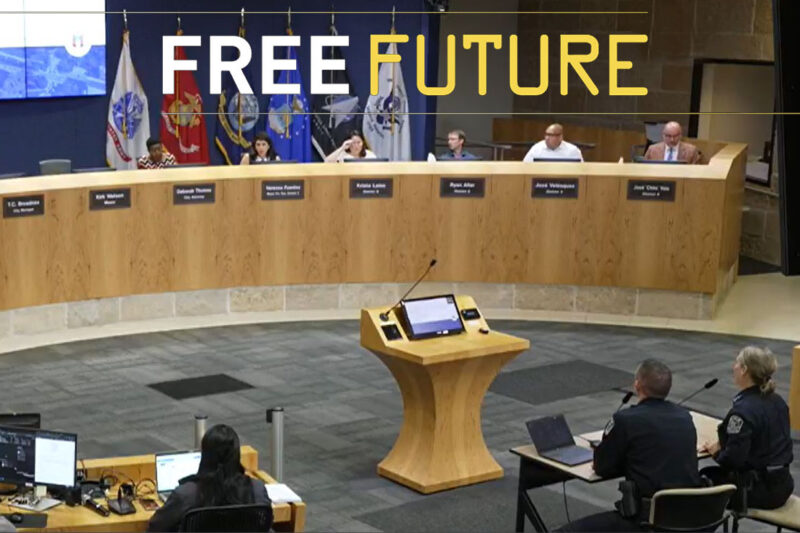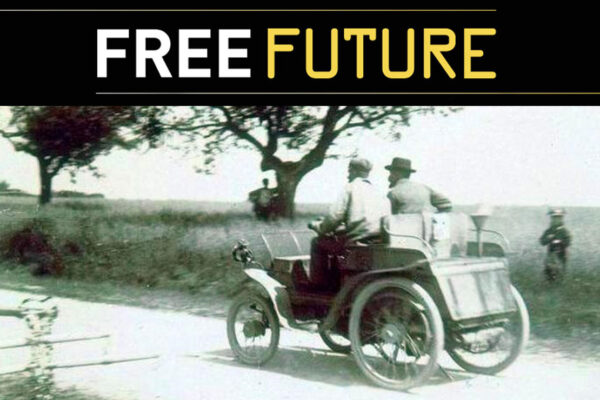I’m Hearing About More Pushback Against Flock, Fueled by Concern Over Anti-Immigrant Uses


The Trump Administration’s targeting of immigrants, combined with growing awareness that ICE is making use of local automated license plate reader (ALPR) systems in the Trump Administration’s mass deportation efforts, appears to be adding to growing opposition to such driver-surveillance programs around the country.
As I discussed in my Monday overview of the company, the most prominent seller of ALPR cameras, Flock, allows police departments to make the data from their plate readers available to other departments across the country in what amounts to a giant nationwide warrantless surveillance infrastructure. In May, we that national searches are being carried out by local officers on behalf of ICE for immigration purposes.
This data sharing shouldn‚Äôt have been surprising; ICE has long shown an interest in using this technology to locate people. In 2019, the 51∆∑≤Ë of Northern California explained how ICE was using a system run by Flock competitor to target immigrants ‚Äî in part by making requests to friendly local officers who had access to the company‚Äôs giant location database.
Higher stakes
Still, this newest revelation seems to be reverberating across the country, fueling debates over the technology. That’s likely due in part to greater awareness of the general privacy problems with the technology. But it’s definitely also because the stakes are higher given the Trump Administration’s abusive and illegal ( ) anti-immigrant program, which has targeted not only undocumented immigrants but also green card holders, others with various forms of legal status, and .
Adding to the angst over LPR programs has been the revelation that a used Flock’s system to search nationwide for a woman who’d had a self-administered abortion — illegal in the state. LPR data can be abused not just by ICE, and not just for immigration purposes, but for other purposes too. The Trump Administration has been going after all manner of perceived enemies, and there are many scenarios in which location data could be used to compromise someone.
I warned about ICE usage of Flock in a 2022 white paper, where I quoted Flock CEO Garret Langley‚Äôs when asked by Vice News whether Flock could be used for immigration purposes: ‚ÄúYes, if it was legal in a state, we would not be in a position to stop them,‚Äù adding, ‚ÄúWe give our customers the tools to decide and let them go from there.‚Äù Of course, if your town‚Äôs data is being shared across the nation, you ªÂ¥«≤‘‚Äôt actually have the tools to decide ‚Äîanyone with access to that data could share it with ICE. Or anti-abortion state officials. Or others.
Policymakers need to recognize that the boundaries between local surveillance and the Trump Administration (as well as malevolent administrations in other states) are porous and hard to maintain — that if you collect local data on your residents’ comings and goings, it will be hard to keep that from being used in unintended ways. And recognition of this does seem to be growing. Examples in recent months include:
- In Gig Harbor, Washington, the police chief found himself grilled by city council members over ICE data sharing. “You sent some information I think about the city of Puyallup and they said that I believe they belong to 593 networks,” . “So … if we share data with Puyallup what's to keep Puyallup from putting that data all over 593 networks?”
- In Syracuse, New York, councilors to know how their local LPR data ended up being 4.4 million times by police around the country without a warrant and shared with ICE despite promises to the contrary.
- The Evanston police department out-of-state access to its ALPR database after revelations that the city’s data had been at least seven ICE searches, despite a state law that bans data sharing with ICE.
- Austin officials (shown in photo above questioning police officials) decided the city’s contract with Flock. “Austin should not be participating in Trump’s mass surveillance programs,” declared Council Member Mike Siegel.
- In Denver the city council a Flock contract proposal unanimously. “We acknowledge that today’s environment is much different than when the pilot began in early 2024,” said the mayor.
- In Richmond, the police agreed to share LPR data with the Bureau of Alcohol, Tobacco, Firearms and Explosives (AFT). In June they found out that ATF had been without notifying the city. Richmond then cut off the data sharing.
Even in places that ultimately approve of Flock contracts, I’m hearing more and by elected officials and community members. And we’re starting to see among in putting on ALPR surveillance. A in Virginia is rightly claiming that LPR readers of a certain density violate the Fourth Amendment by routinely tracking people not suspected of wrongdoing.
I’m not the only one to notice this trend — after I initially drafted this piece, the surveillance research publication IPVM published a similar report, “” detailing local opposition across the country.
Behind much of this activity stand local activists working against this program — for example, a coalition pushing back hard on LPR in , and a man named Will Freeman, who runs a site called “DeFlock” that seeks to map out the exact locations of LPR devices across the country. Flock tried to scare Freeman by sending him a letter threatening legal action, but fortunately he obtained representation by our friends at the Electronic Frontier Foundation, who the company’s unethical intimidation attempt.
Increasing awareness of how data collected locally can be used by ICE and the Trump Administration should also grow to cover private customers of companies like Flock. That includes not just customers like but also the managers — and customers — of companies like Home Depot and Lowes, which records show are from hundreds of cameras they maintain to law enforcement through Flock.
The spreading opposition to mass driver surveillance is great, but we need to see a lot more of it. Let’s hope that state legislatures and local governments around the nation not only move in the same direction as these towns and officials, but go on to enact strong, meaningful protections of our privacy against this AI surveillance machinery.
Selected 51∆∑≤Ë coverage of license plate scanners:
Flock’s Aggressive Expansions Go Far Beyond Simple Driver Surveillance (August 2025)
Communities Should Reject Surveillance Products Whose Makers Won't Allow Them to be Independently Evaluated (March 2024)
(February 2024)
How to Pump the Brakes on Your Police Department’s Use of Flock’s Mass Surveillance License Plate Readers (February 2023)
White paper: Fast-Growing Company Flock is Building a New AI-Driven Mass-Surveillance System (March 2022)
Report: You Are Being Tracked (July 2013)



